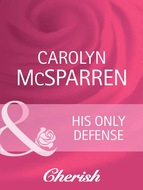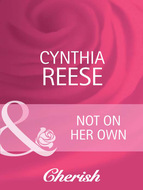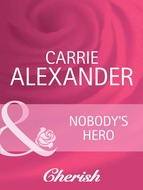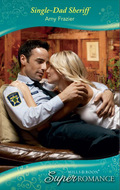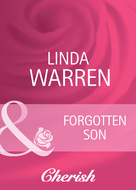Raamatut ei saa failina alla laadida, kuid seda saab lugeda meie rakenduses või veebis.
Loe raamatut: «Bone Deep»
“It could get worse.”
Grant felt guilty immediately, seeing the way Kat flinched at his words. A part of him wanted to step closer and pull her into a comforting embrace. But he didn’t dare until he could be sure she didn’t have anything to do with her husband’s disappearance.
His mouth twisted in something like amusement. Yeah, imagine how she’d react if he tried to take her into his arms. It would probably be like trying to cuddle a feral cat. Teeth and claws would fly, and he’d bleed.
“Yes,” she said, so quietly he scarcely heard her. “The way people looked at me back then, I knew what they were thinking.” Her eyes met his. “What you were thinking.”
Grant shook his head. “I was doing my job, staying open-minded. No more, no less.” That was a lie, of course, but she wouldn’t welcome the truth.
“And is that what you’re doing now, too?”
His jaw tightened. “Yes.”
“But you’ll let it go if I ask you to?”
“Yes.” After a pause, he added, “For now.”
Dear Reader,
I’ve realized recently how many of my books are really about finding someone who has been missing from our lives. Never knowing what’s become of a loved one would be worse, I think, than losing him or her to a tragic accident. You might be haunted even more if you hadn’t said goodbye on good terms; if you’re gripped by guilt as well as grief.
Bone Deep started from a newspaper article about a woman who has spent years checking with police departments every time human remains were found in hopes they’d be her brother’s. But then I got to thinking… What if your loved one didn’t stay missing? What if he was returned to you after a long time—piece by piece? I don’t know about you, but I’m pretty sure I wouldn’t be as gutsy as Kat, the heroine in Bone Deep. Of course, it would help if I had a man as sexy and determined and loving as Grant Haller backing me up.
But back to that theme… Funny thing, but my upcoming book is turning out to be about finding that missing person, too. And, hey! I’ve never lost anyone in my own life. Really.
Happy reading,
Janice Kay Johnson
Bone Deep
Janice Kay Johnson

MILLS & BOON
Before you start reading, why not sign up?
Thank you for downloading this Mills & Boon book. If you want to hear about exclusive discounts, special offers and competitions, sign up to our email newsletter today!
Or simply visit
Mills & Boon emails are completely free to receive and you can unsubscribe at any time via the link in any email we send you.
ABOUT THE AUTHOR
The author of more than sixty books for children and adults, Janice Kay Johnson writes Harlequin Superromance novels about love and family—about the way generations connect and the power our earliest experiences have on us throughout life. Her 2007 novel Snowbound won a RITA® Award from Romance Writers of America for Best Contemporary Series Romance. A former librarian, Janice raised two daughters in a small rural town north of Seattle, Washington. She loves to read and is an active volunteer and board member for Purrfect Pals, a no-kill cat shelter.
For Mom, who reads every word before anyone else does.
Thank you, Mom, for loving me, inspiring me…and helping make my writing better.
Contents
CHAPTER ONE
CHAPTER TWO
CHAPTER THREE
CHAPTER FOUR
CHAPTER FIVE
CHAPTER SIX
CHAPTER SEVEN
CHAPTER EIGHT
CHAPTER NINE
CHAPTER TEN
CHAPTER ELEVEN
CHAPTER TWELVE
CHAPTER THIRTEEN
CHAPTER FOURTEEN
CHAPTER FIFTEEN
CHAPTER ONE
“THIS YEAR’S SNOHOMISH County Business Owner of the Year is…” Behind the podium at the front of the ballroom, Judith Everest paused long enough to search out the five nominees in the crowd, her gaze pausing at each until she reached Kat. Smiling, she concluded, “Kathryn Riley of Sauk River Plant Nursery!”
The room erupted in applause. Dazed, Kat stumbled to her feet.
Four days later, she still glowed at the memory. To think that, four years ago, the business had been close to going under.
Too bad she couldn’t actually slow down to savor the honor the way she’d like. This was spring, for a plant nursery the equivalent of the pre-Christmas rush for most retailers. She was going nonstop.
In as close to a break as she could afford, she’d escaped to one of the greenhouses to pot seedlings. Now she gently sifted a little potting mix around a sturdy petunia, then scooped up some compost from a separate wheelbarrow with her trowel. Even though she worked without pause, with hundreds of seedlings waiting to be potted, she reveled in both the silence and the humid warmth. This was as peaceful as it would get for her until July.
And all that publicity about her being honored by the business community, reported in both the Seattle Times and the Herald, wouldn’t hurt business.
She patted the new soil into place, then set the seedling onto a flat and grabbed an empty pot from a stack of them. She dumped two inches of potting mix into the pot, tucked the next seedling in, then scooped up compost to add richness for the roots.
Snohomish County Business Owner of the Year.
Unbelievable. Four years ago, left alone and facing bankruptcy, she’d clung fiercely to dreams. The nursery had been her salvation, and look what she’d done with it even though she knew no one had believed she could handle the business at all.
Smiling, she carefully tilted the trowel to pour the dark compost into the four-inch plastic pot.
Something fell with it. The seedling quivered.
“What on earth…?” she murmured.
Setting down the trowel, Kat stripped off her gloves and pulled the long, ivory-colored rock from the pot.
Wiping the dark, damp compost from it, she realized, no, not a rock. Porous, it didn’t weigh enough, and widened at each end like a segment of bamboo. She stared down at the thing in her hand, the ball of her stomach knowing what it was before her brain caught up.
A bone. There’d been a bone in her compost.
“Kat?” The voice was loud and close.
She jerked, adrenaline shooting through her, and lifted her head. Her newest employee, a lanky nineteen-year-old named Jason Hebert, had come all the way into the greenhouse without her noticing, probably calling her name all the way. He looked perplexed.
“Are you okay, Kat? Was I supposed to not interrupt you? I’m sorry. I’ll go away…” His gaze dropped to the object in her hand. “Is that a bone?”
“It was in the compost.” She turned it in her hand. “From some animal, I guess.”
He peered more closely. “You sure? It looks like a finger bone.” He held out his own hand and waggled his fingers in a 3-D demonstration. “You know, a phalange?”
No, she didn’t. Although maybe she should, given that she thought about human remains way more often than the average person.
“I’m taking Anatomy this semester. We saw a real skeleton. That’s what this looks like.”
If this was a finger bone, it was larger than hers, Kat couldn’t help thinking. Longer and thicker. A man’s, maybe.
“You know, it’s probably dumb,” she said, giving a half laugh as if no more than mildly startled by the find, “but I’d better call the police just in case.”
“Yeah. Maybe some guy got it sliced off.” Jason sounded ghoulishly pleased.
They did operate heavy machinery at the compost facility not two miles away. She didn’t remember hearing about anyone losing a finger—especially a finger they never found to reattach—but that did make sense.
Or it was a leg bone from something small, something dog- or cat-sized. It was silly to get alarmed because a community college student who’d once seen a real human skeleton had identified this bone. Still…the unease that made her queasy decided her. If it was a human bone…
Oh, God. Hugh.
With an effort she suppressed the sickening mix of dread and…not hope. She couldn’t be feeling hope. Since Jason was still hovering, Kat asked, “What was your question? Can it wait while I make a quick call about this?”
“Huh? Oh, sure. It was just Ms. Lindstrom, about the garden club meeting. But she said something about needing a flowering plum or maybe cherry and went out that way, so she’s probably forgotten.”
Annika Lindstrom was one of their best customers and the owner of a spectacular garden that was the centerpiece of many a garden tour. She and Kat weren’t quite friends, but close enough that she wouldn’t be insulted if Kat didn’t immediately appear.
“I’ll find her when I’m done.”
“Oh, and that guy from the Globe. He was here, but I think he got a phone call and left.”
Mike Hedin was the editor of the local weekly newspaper. She’d been half expecting him to want to talk to her about the award.
“Okay, thanks,” she said. Sending Jason back to work, she took the rear door out of the greenhouse, stepping from tropical warmth into the crisp air that still felt like winter.
The temperature in her small office at the back of the main nursery building was somewhere in between. Setting the bone in front of her, she sat at her desk and reached for the phone.
Halfway through dialing, it struck her. How many times had she called police jurisdictions throughout the state to ask about remains found buried in some backyard? What were the odds that she, of all people, had actually found a human bone? God. The local police would probably think she’d gone completely around the bend.
A giggle escaped her throat like a hiccup, and she covered her mouth, swiveling to make sure the door was still closed and nobody had heard her. Sternly, she told herself this wasn’t exactly funny, just…ironic.
“Fern Bluff Police Department.” She knew the bored sergeant who answered the phone.
“Martin, this is Kat Riley at the nursery. I’ve found a bone in the compost. It’s probably from an animal, but, well, one of my employees is taking an anatomy course at the college and he thinks it looks like a human finger bone.” A little ashamed of herself, she thought, That’s it, blame poor Jason. “So I thought I’d better report it.”
“Well, let me get the chief for you.”
“That’s not necess—”
The quality of the silence told her she was on hold. Kat muttered a word she wouldn’t have said in front of a customer. He hadn’t even waited for her protest!
But she guessed it made sense for him to call the chief. Fern Bluff had grown with stunning speed these past several years, since software giant Microsoft had opened a Snohomish County campus on the outskirts of town. The police force had quadrupled in size, as had crime, but even so she suspected Chief Grant Haller was the only member of the force with any real experience with homicide.
Besides…the sergeant knew about Hugh.
Martin came back on a moment later. “The chief says to tell you he’ll be out to take a look.”
“Fine,” she said. “Thank you.” She hung up the phone, hating how short of breath she suddenly was, how dismayed. She didn’t see Grant Haller often outside chamber of commerce meetings or the like. She’d armored herself against those occasions. But that moment at the banquet last week had shaken her. When her name had been announced, out of the several hundred people present, he was the only one she seemed able to focus on. He’d dipped his head in acknowledgment of her triumph, then given her an odd, wry smile, his eyes warm. Heart drumming, she’d realized he was still interested. She hadn’t dreamed, hadn’t thought…
But now she had, and now he was on his way here. And she wouldn’t be seeing him in the midst of a crowd at a city council meeting, but rather in the close quarters of this office, her sanctuary.
Breathless, she thought, I’m not ready. But she had no choice. This wasn’t the kind of thing she wanted to talk about in front of half a dozen customers lined up to pay for their flats of early spring bedding plants.
This. Oh, God. She’d almost forgotten. She looked down at the bone, lying on her desk blotter, bits of dark compost still clinging to it like soil from a grave. Unable to help herself, she laid her hand next to it, comparing the length and thickness to her own finger bones. It could be a man’s.
It could be Hugh’s.
Kat shuddered and withdrew her hand, curling it into a fist she pressed against her belly. No! How many times had the compost been turned and bagged or loaded into trucks and replaced over at Wallinger’s? At least yearly, they must get down to bare ground and start over with yard debris and Christmas trees and fallen branches from the road cleanup crews, grinding it all up, mounding it fifty or more feet high, letting it gently steam as it rotted. No part of those mounds had been there for the nearly four years since Hugh’s disappearance.
Anyway, how likely was it that her husband had ended up dead in the compost pile two miles down the road? Without a single bone turning up until now?
She blew out a breath and sat back, the ancient oak office chair squeaking. Thank God for the voice of reason. She’d really worry about herself if she started seeing bits of Hugh everywhere.
I may be obsessed, she thought, but I’m not crazy. Not yet.
GRANT WOULD HAVE BEEN GLAD of an excuse to get out of the station and away from the spreadsheets he’d been peering at on his computer, if only the bone had turned up someplace else.
He was both surprised, and not. Every damn thing involving Kat Riley was complicated for him, even though Grant had known for a long time that he should give up any hope that whatever they’d briefly had would go anywhere, whether they were both single or not. Clearly, she wasn’t going to let it, not obsessed as she was with the husband who had driven away one day in his rattletrap pickup, supposedly to check out a rhododendron wholesaler up Chuckanut way, never to be heard from again.
Downtown’s half a dozen lights all turned red against him, a not uncommon occurrence as they were the old-fashioned kind that were indifferent to the presence of any real cars on the road. Like most other remnants of small-town life, they were slated to be replaced in the next year. He’d once found them annoying, but now felt almost nostalgic.
He was able to speed up once he hit the outskirts. City limits had been generously drawn, and took in a wide swath of river valley and wooded country upriver. The nursery sat on low ground, taking advantage of rich soil deposited by floodwaters, but also at risk when the water rose every couple of years.
Grant pulled his squad car into the parking lot and had to wait for someone to reverse out before he could park. The place was bustling, staff helping customers load bags of peat moss and compost into car trunks and the backs of pickups. He wasn’t even out of his car before he spotted a city councilwoman and a school board member. Out of habit and since he was wearing his uniform, he nodded at folks he knew and didn’t know as he crossed the lot and entered the nursery, which involved threading a strategic maze of tables bearing brightly colored pansies—even he recognized them—and pots of tulips and daffodils as well as cedar window boxes and tubs. Shrubs, set in big pots here and there, were breaking into bloom and scenting the air.
Was there any chance at all that Hugh Riley’s body had been right here at the nursery all these years, missed in the intensive search he and his men had conducted?
If it had been… His jaw tightened. If this bone was her husband’s, Kat Riley would have to be the principal suspect in his death.
Yeah, but then why would she have called today to report finding this bone? Why not make it quietly disappear?
Because one of her employees had seen it, Grant remembered. He’d talk. She couldn’t dump it.
Damn, he hoped this bone wasn’t human.
One of the employees spotted him and when he said he was looking for Kat, called to a skinny teenage boy who had an air of suppressed excitement. Grant would lay money he was the budding forensic anthropologist.
“She said she’d be in her office,” the boy told him importantly.
Grant nodded. “Thanks.”
In the years since she took over management of the nursery, Kat had made big changes, including the expansion of a small gift area into a spacious indoor shop that included an attached conservatory with tropical plants for the house. He bet she’d done well with Christmas shoppers, since she now stocked the work of a dozen local artisans as well as gardening tools and gadgets, a vast selection of pots and garden statuary, seeds, bulbs and fertilizers.
He had to be directed to the door to her office, which, almost hidden behind a rack of hand tools, said Employees Only. When her husband disappeared, Grant had spent plenty of time out here, but what had been her office then was now part of this expanded gift area.
He lifted his hand to knock, then hesitated. Damn it, why her? He kept thinking that eventually he’d feel only indifference when he saw her, but that hadn’t happened yet. The sight of her last week at that banquet, wearing a peach-colored sheath that bared a mile of legs and the top swell of her breasts, had been like a gut punch. He’d almost bent over at the pain.
Kat Riley was tall and lush and vibrant. Some people might have called her thick, glossy hair “brown,” but it had a copper gleam in sunlight and some strands as pale as dried cornstalks, others as dark as mahogany. He’d sat directly behind her once at a chamber meeting and, lost in fascination with her hair, missed ninety percent of what was said.
No loss, of course, and thank God no one had asked him a question.
She had great cheekbones, deep blue eyes and a mouth he thought would have gentle curves if she ever let it relax. He wasn’t sure her face was entirely symmetrical. The details didn’t seem to matter. Some combination of physical characteristics and personality and—hell, who knew?—chemistry made her irresistible to him.
Once, he’d thought she felt the same.
He took a deep breath, rolled his shoulders and knocked.
“Come in,” she called.
When he opened the door, it was to find her standing behind her scarred oak behemoth of a desk as if she, too, had braced herself.
She looked at him coolly. “You didn’t have to come yourself.”
Stung by how obviously she wished he hadn’t come himself, he only shrugged. “I was arguing with my budget. Any excuse.”
She nodded, the movement a little jerky. “This is a waste of your time anyway. But I have a kid working here who’s taking Anatomy at the college, and when he saw the bone he was just sure it was human.” She rolled her eyes, as though to say, Of course, I never thought anything that stupid.
Not surprising she was sensitive about having to make this kind of call. She’d spent the past four years riding every law enforcement department in western Washington about any human remains that turned up, making sure they remembered that her husband had never been found, dead or alive.
He’d been peripherally aware of the bone lying there right in front of her, but now he said, “Well, let’s see it,” and reached across the desk.
The moment he really looked, Grant knew. Well, crap. He turned the small bone in his hand, seeing the way she stared at it as if it were a black widow spider. Oh, she knew, too, on the same gut level he did.
He didn’t tell her how many bones he’d seen. Didn’t like to think about the killing field in Bosnia where they’d dug up forty-eight complete skeletons. A few men, mostly women and children. Most of his nightmares involved human skeletons, whole or shattered to fragments.
“I’m no forensic scientist,” he said, “but I think your kid’s right. It looks human to me, too.”
“Oh, no,” she whispered, and sank into her chair as if her legs had lost strength. Her unblinking, shocked gaze stayed riveted on the bone in his hand. “How could it be…?”
“I don’t know. I’ll get it looked at to be sure, then ask some questions.” He set it down on the desk and pulled a small spiral notebook from his breast pocket. “Where did you find it?”
He relaxed a little when she explained that it had been in compost she’d shoveled into a wheelbarrow that morning from the piles in back that were regularly replenished by Wallinger’s. Grant’s men had dug through those heaps of compost, bark and shavings after Hugh’s disappearance. No body. So this bone had nothing to do with her. Cruel chance had made her the one to come across it. Hell, most people probably would have thought, animal bone, shrugged and tossed it out.
And maybe it was an animal bone.
He had her walk him to the greenhouse where the wheelbarrow sat, and with her permission combed through the dark, damp compost carefully to be sure the rest of the finger wasn’t in it.
“Show me which bin you got this batch out of.”
Back outside, shrubs in big black pots marched in rows, evergreen separated from deciduous, all carefully labeled so purchasers would know the eventual size, sun and soil needs and time of bloom. Then flowering trees, some already budding, were heeled into ridges of shavings. Half a dozen customers prowled out here on the back forty. He knew several of them, including Pete Timmons, one of his own deputies who happened to be off today. Pete returned his nod, but eyed Kat speculatively. She clearly noticed, because her cheeks flushed.
Grant was most surprised to see George Slagle, who owned the lumberyard and hardware store in town. There’d been talk that George resented Kat’s nomination for Business Owner of the Year, considering his revenue was likely two or three times hers. And Grant knew his house had been landscaped by the builder and probably maintained by a yard service. George was no gardener.
Some woman Grant didn’t know spotted Kat and called, “Can I ask you something?”
She smiled and held up her hand. “Give me a minute and I’ll be right back. George, nice to see you.”
George nodded, looking a little unhappy.
She was good, Grant mused. She must be thrumming with tension, but she’d exuded the friendliness and helpfulness that brought return customers.
Behind the last greenhouse, a row of bins, each five or six feet wide and maybe eight feet deep, had been constructed with railroad ties. Lower fronts allowed access. Kat pointed to one, with the compost getting low.
“Go help that woman,” he suggested. “I’ll dig through this.”
She bit her lip, nodded and left him to it.
He should have asked her for gloves, but shrugged, grabbed a shovel leaning against the dark ties and stepped into the bin.
Trying to be systematic, he lifted one shovelful at a time, moving compost from the back to the front. As he poured compost from the shovel, he watched closely.
Nada.
His arms and shoulders ached by the time he was confident he’d examined every damn inch of that pile. Since he’d moved it to the front, he had to climb over it to get out, his shoes sinking into the soft, damp heap.
Damn it, despite a temperature in the high thirties, he was sweating and filthy. He’d better go home and shower before he went back to the station.
Kat appeared as soon as he leaned the shovel against the ties. Seeing the anxiety in her eyes, he didn’t make her suffer.
“Nothing. May turn out I’m wrong and it’s from an animal. If not…” He shrugged. “Chances are, we’ll never know how that one bone ended up in there. I’ll go talk to them at Wallinger’s, though. They might’ve had an accident, or know of one at a logging site or with one of the road crews.”
Relief leaped into her eyes. “I was thinking that earlier. It would be easy to stick a hand into a shredder.”
He nodded. “That’s my best guess. Not something we’d necessarily hear about.”
“Yes.” She gave a long exhalation as tension left her body. “Okay. You’ll take it, then?”
“I’ll take it.” He already had; he’d slipped it into an evidence bag and then his pocket.
“And you’ll let me know?”
“Minute I hear anything.”
“Okay.” Shyness wasn’t usual for her, but she was plainly feeling it. Still, she met his eyes. “Thank you.”
So now she was grateful he had come, Grant realized, which meant she’d been more scared than she would want to admit.
“Coming out here’s my job.”
“You could have sent someone.”
“I want to find Hugh as bad as you do.”
Seeing the turmoil on her face, he cursed himself immediately for baiting her that way. Their history had no place here, and neither did his longing for something that wasn’t going to happen. “That’s the only major open case on our books,” he explained. Let her think that’s all he’d meant.
After a moment, she managed to suppress her reaction and give a jerky nod. “I’ll walk you back.” Her gaze lowered, seeing his hands. “You popped a blister.”
He’d acquired several blisters. The one that was now flattened and seeping burned. “Don’t worry. I’ll wash it up at home.”
“I should have found you some gloves.” Kat sounded contrite. “I didn’t think.”
“Don’t worry,” he said again. He nodded at the nursery around them. “Business looks good.”
“It’s been great. Didn’t even slow down this winter as much as usual, maybe because of the mild weather.”
“I was surprised to see George Slagle here.”
“He’s planning to put in a row of trees to screen the lumberyard from Legion Park.”
Beautification didn’t seem George’s style, but who was Grant to say?
Changing the subject, he said, “You’ve turned this nursery into something special.”
“Hugh and I made plans years ago.”
He didn’t believe it. She’d probably made plans, and her husband had nodded agreeably. Hugh Riley had been known for charm but not ambition. Grant had never been one of his fans, although the fact that he coveted Riley’s wife might have had something to do with that.
They’d arrived out front. “What smells so good?” Grant asked, at random.
“Daphne mezereum.” She pointed out a small shrub with pink flowers just opening and no leaves.
“I wouldn’t mind one of those in my yard,” he said at random, wanting to hold her in conversation.
Eyebrows raised, she glanced at his blisters. “They can be fragile.”
So, okay, she could tell he wasn’t any kind of gardener, but, irked by her pitying tone, he said, “I’ll take one.”
Next thing he knew, she’d deftly turned him over to a brisk, wiry woman who lectured him on planting it right away, digging a hole bigger than the root-ball and filling it with compost and peat moss. Kat herself vanished long before he handed over his debit card and winced at the total, then drove away with bags of both peat moss and compost in his trunk and the shrub on the floor next to him, its sweet smell damn near sickening in the confines of his car.
No wonder business was booming if all the customers were as easy to manipulate as he’d been.
Putting the car into gear, Grant shook his head at his own idiocy. He didn’t want to plant anything, but now he’d spent so much money, he had to take care of the shrub as though it were a baby. Planting it would have to wait until Sunday, though. If it could sit safely in a plastic pot at the nursery, it could sit a few more days at his house.
So…home to unload, shower and put on a clean uniform and at least one bandage, then up to the community hospital to find Dr. Arlene Erdahl, the pathologist, and get answers about the bone in his pocket.
He might be ninety percent sure it was human, but he was praying for the other ten percent. Despite what he’d told Kat, he had an uneasy feeling about this. No human bones had turned up in Fern Bluff since he signed on as police chief. Now, assuming one had, it was at the nursery owned by Hugh Riley.
Who so happened to be the only person who had gone missing locally in Grant’s tenure.
He never had believed in coincidences.
Tasuta katkend on lõppenud.


